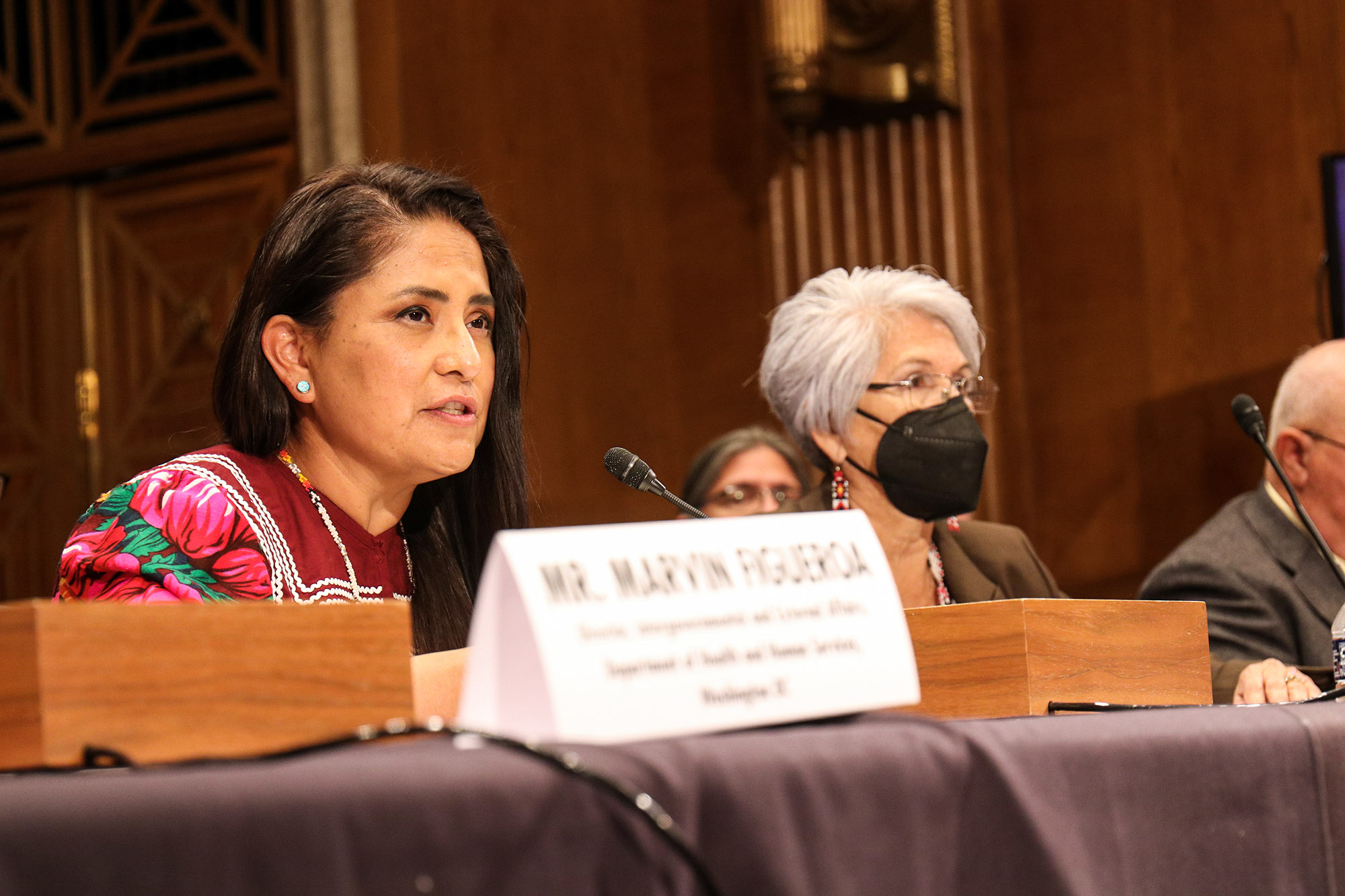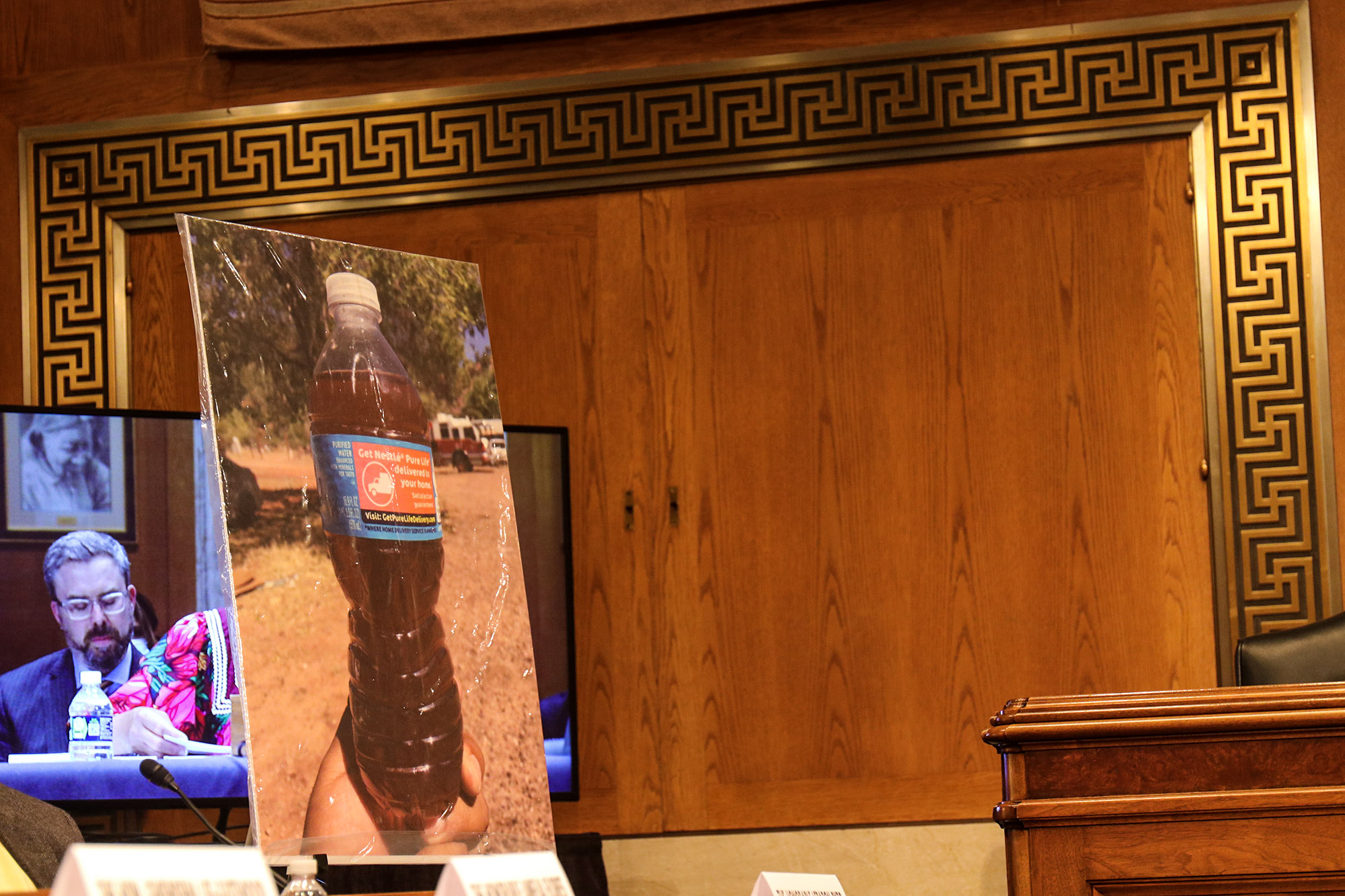Indianz.Com > News > Cronkite News: Tribes outline water needs at hearing on Capitol Hill
Two Arizona tribe leaders make case for critically needed water projects
Thursday, April 7, 2022
Cronkite News
WASHINGTON, D.C. — Leaders of two Arizona tribes asked lawmakers last week to support funding for development of critical water infrastructure and to OK a bill that would let tribal water be sold to others in the drought-stricken state.
White Mountain Apache Chairwoman Gwendena Lee-Gatewood told the Senate Indian Affairs Committee that her tribe needs more time and money to complete a long-delayed rural water system promised by the federal government more than 10 years ago.
And Colorado River Indian Tribes Chairwoman Amelia Flores said her tribe has deals to reallocate some of its water, but needs congressional approval to do so. But Flores said the hearing was about more than just water rights and infrastructure.
“This bill will allow our tribes sovereignty, it’ll enhance and strengthen our sovereignty for our tribal people,” Flores said after the hearing.



Note: This story originally appeared on Cronkite News. It is published via a Creative Commons license. Cronkite News is produced by the Walter Cronkite School of Journalism and Mass Communication at Arizona State University.
Senate Committee on Indian Affairs Notice
Legislative Hearing to receive testimony on S. 1397, S. 3168, S. 3308, S. 3443, S. 3773 & S. 3789 (March 23, 2022)
Related Stories
Legislative Hearing to receive testimony on S.1397, S.3168, S.3308, S.3443, S.3773 & S.3789 (March 23, 2022)
Search
Filed Under
Tags
More Headlines
Native America Calling: Can the right approach close the Native immunization gap?
Cronkite News: Long COVID cases remain high in Arizona
Native America Calling: Eyes in the sky for development, public safety, and recreation
Native America Calling: Three new films offer diverse views of Native life
NAFOA: 5 Things You Need to Know this Week
Chuck Hoskin: Cherokee Nation works toward cure for arthritis
Native America Calling: Protecting young people from the down sides of social media
Cronkite News: Fake ‘shaman’ among candidates failing to make Congressional ballot
Native America Calling: New Native voices in poetry
Cronkite News: Tribes air concerns about border at hearing in nation’s capital
Native America Calling: Indiginerds descend on Oklahoma City
Native America Calling: Political leaders target tribes with unfounded claims
Cronkite News: First Native woman in space shares unique journey
Native America Calling: Tackling a troubling trend for Native women in prison
Chuck Hoskin: Cherokee Nation safeguards our Native language
More Headlines
Cronkite News: Long COVID cases remain high in Arizona
Native America Calling: Eyes in the sky for development, public safety, and recreation
Native America Calling: Three new films offer diverse views of Native life
NAFOA: 5 Things You Need to Know this Week
Chuck Hoskin: Cherokee Nation works toward cure for arthritis
Native America Calling: Protecting young people from the down sides of social media
Cronkite News: Fake ‘shaman’ among candidates failing to make Congressional ballot
Native America Calling: New Native voices in poetry
Cronkite News: Tribes air concerns about border at hearing in nation’s capital
Native America Calling: Indiginerds descend on Oklahoma City
Native America Calling: Political leaders target tribes with unfounded claims
Cronkite News: First Native woman in space shares unique journey
Native America Calling: Tackling a troubling trend for Native women in prison
Chuck Hoskin: Cherokee Nation safeguards our Native language
More Headlines